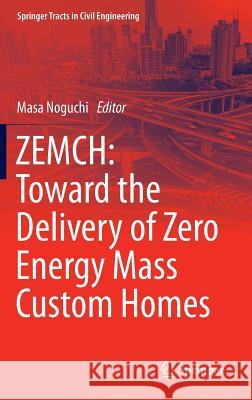Zemch: Toward the Delivery of Zero Energy Mass Custom Homes » książka
topmenu
Zemch: Toward the Delivery of Zero Energy Mass Custom Homes
ISBN-13: 9783319319650 / Angielski / Twarda / 2016 / 360 str.
Kategorie:
Kategorie BISAC:
Wydawca:
Springer
Seria wydawnicza:
Język:
Angielski
ISBN-13:
9783319319650
Rok wydania:
2016
Wydanie:
2016
Numer serii:
000796527
Ilość stron:
360
Waga:
6.80 kg
Wymiary:
23.5 x 15.5
Oprawa:
Twarda
Wolumenów:
01
Dodatkowe informacje:
Wydanie ilustrowane











